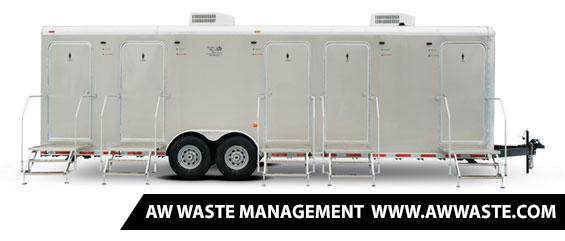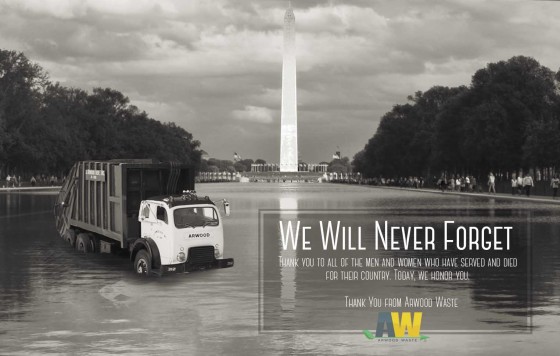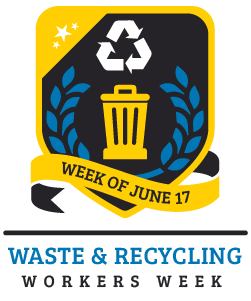Flight Attendants Are Sanitation Workers Too
Did you know that flight attends are garbage men and women too? Just think about it……. They bring you your snacks drinks on a rolling cart during the flight. As your flight is coming to an end they start their routine route of picking up the garbage and recycle in those tiny small plastic bags. Its really amazing how hard they work having to dodge passengers poking at them, ringing the bell, and most importantly trying to maneuver down a tiny pathway in a closterfobic environment 10,000 feet above the earth. The next time you go on a flight try to think again before you give them a hard time.

http://www.greenamerica.org/PDF/AirlineRecyclingReport.pdf
The post Flight Attendants Are Sanitation Workers Too appeared first on AW Sites.
Going Green…It’s Our World, Let’s Keep It Clean
Helping To Make Cleveland Green

Container Sizes
The post Going Green…It’s Our World, Let’s Keep It Clean appeared first on AW Sites.
Waste Connections, Progressive Waste Merger
In special meetings held yesterday, shareholders of Toronto-based Progressive Waste Solutions and The Woodlands, Texas-based Waste Connections approved the previously announced plan of merger between the two firms. The deal is now expected to close on June 1.
Under the plan, originally announced in January, Progressive Waste, Water Merger Sub LLC, a wholly-owned subsidiary of Progressive Waste, and Waste Connections, Inc., a Delaware corporation will merge with Waste Connections continuing as the surviving corporation. The deal is valued around $2.7 billion. The two companies posted more than $4 billion in revenues in 2015. They rank fifth and sixth on the current Waste360 Top 100. After the tie-up, the combined entity will rank third.
A transaction resolution received support from approximately 99.47 percent of the votes cast at Progressive’s meeting. A similar one received more than 99 percent of votes cast at Waste Connection’s meeting.
The combined company is made up of 273 collection operations, 132 transfer stations, 93 landfills, 71 recycling facilities in solid waste and 24 SWD wells and 20 E&P treatment facilities, according to Stifel Managing Director Michael E. Hoffman.
Progressive shareholders also passed a resolution approving a consolidation of the outstanding Progressive shares on the basis of one Progressive share on a post-Consolidation basis for every 2.076843 Progressive Shares outstanding on a pre-Consolidation basis. This resolution also received support from 99.47 percent of the votes cast at Progressive’s meeting..
Upon completion of the merger, Waste Connections stockholders will receive 2.076843 Progressive shares for each share of Waste Connections common stock. Immediately after completion of the merger, every 2.076843 Progressive shares will be converted into one Progressive share.
After the merger and consolidation, Waste Connections stockholders will receive one post-consolidation Progressive Share for each share of Waste Connections common stock held immediately prior to the merger.
Upon completion of the merger, Waste Connections stockholders will own approximately 70 percent of the combined company and Progressive shareholders will own approximately 30 percent of the combined company.
The combined company will use the Waste Connections name and its shares are expected to trade on the New York Stock Exchange and on the Toronto Stock Exchange under the symbol “WCN.”
Hoffman reiterated his “buy” rating on Waste Connections in a research note, writing “The initial SG&A synergy goal in the first twelve months is $50mm with some upside expected. There has been a general assumption and some discussion about operational synergies with a focus on safety, maintenance & repairs and labor and productivity. We believe these efforts could contribute up to $75mm over three years. In addition we look for the NewCo to drive more price leverage in the US operations from BIN.”
http://waste360.com/mergers-and-acquisitions/shareholders-approve-waste-connections-progressive-merger?NL=WST-03&Issue=WST-03_20160527_WST-03_110&sfvc4enews=42&cl=article_1&utm_rid=CPEQW000001125839&utm_campaign=7564&utm_medium=email&elq2=17ff08ff69fe4fa8863faa9b5b7f48dc
The post Waste Connections, Progressive Waste Merger appeared first on AW Sites.
Waste Connections, Progressive Merger
In special meetings held yesterday, shareholders of Toronto-based Progressive Waste Solutions and The Woodlands, Texas-based Waste Connections approved the previously announced plan of merger between the two firms. The deal is now expected to close on June 1.
Under the plan, originally announced in January, Progressive Waste, Water Merger Sub LLC, a wholly-owned subsidiary of Progressive Waste, and Waste Connections, Inc., a Delaware corporation will merge with Waste Connections continuing as the surviving corporation. The deal is valued around $2.7 billion. The two companies posted more than $4 billion in revenues in 2015. They rank fifth and sixth on the current Waste360 Top 100. After the tie-up, the combined entity will rank third.
A transaction resolution received support from approximately 99.47 percent of the votes cast at Progressive’s meeting. A similar one received more than 99 percent of votes cast at Waste Connection’s meeting.
The combined company is made up of 273 collection operations, 132 transfer stations, 93 landfills, 71 recycling facilities in solid waste and 24 SWD wells and 20 E&P treatment facilities, according to Stifel Managing Director Michael E. Hoffman.
Progressive shareholders also passed a resolution approving a consolidation of the outstanding Progressive shares on the basis of one Progressive share on a post-Consolidation basis for every 2.076843 Progressive Shares outstanding on a pre-Consolidation basis. This resolution also received support from 99.47 percent of the votes cast at Progressive’s meeting..
Upon completion of the merger, Waste Connections stockholders will receive 2.076843 Progressive shares for each share of Waste Connections common stock. Immediately after completion of the merger, every 2.076843 Progressive shares will be converted into one Progressive share.
After the merger and consolidation, Waste Connections stockholders will receive one post-consolidation Progressive Share for each share of Waste Connections common stock held immediately prior to the merger.
Upon completion of the merger, Waste Connections stockholders will own approximately 70 percent of the combined company and Progressive shareholders will own approximately 30 percent of the combined company.
The combined company will use the Waste Connections name and its shares are expected to trade on the New York Stock Exchange and on the Toronto Stock Exchange under the symbol “WCN.”
Hoffman reiterated his “buy” rating on Waste Connections in a research note, writing “The initial SG&A synergy goal in the first twelve months is $50mm with some upside expected. There has been a general assumption and some discussion about operational synergies with a focus on safety, maintenance & repairs and labor and productivity. We believe these efforts could contribute up to $75mm over three years. In addition we look for the NewCo to drive more price leverage in the US operations from BIN.
http://waste360.com/mergers-and-acquisitions/shareholders-approve-waste-connections-progressive-merger?NL=WST-03&Issue=WST-03_20160527_WST-03_110&sfvc4enews=42&cl=article_1&utm_rid=CPEQW000001125839&utm_campaign=7564&utm_medium=email&elq2=17ff08ff69fe4fa8863faa9b5b7f48dc
The post Waste Connections, Progressive Merger appeared first on AW Sites.
Top Most Expensive Waste Companies
The Waste360 Top 100 ranks the largest waste and recycling firms in North America based on 2015 revenues.
Industry behemoth Waste Management remains at the top of the list based on 2015 revenues of close to $13 billion. Republic Services remains no. 2 on the list based on 2015 revenues of $9.1 billion.
Waste Management’s figure was actually down about $1 billion from 2014, based in part on its divestiture of Wheelabrator assets that closed in late 2014. That decline also contributed to the fact that the combined revenue for the 10 largest companies fell from $37.2 billion in 2014 to $36.9 billion in 2015.
Both Stericycle and Recology posted double-digit percentage gains in revenue. Stericycle’s revenues were up 16.8 percent in 2015, while Recology posted a 12.8 percent gain.
Overall, eight of the top 10 companies in the list posted more than $1 billion in revenues. The list will look a bit different shortly, once the proposed merger between Waste Connections and Progressive Waste Solutions closes. Based on 2015 revenues, the combined firm would rank third on this list.
The top 10 firms combined for $37.2 billion. Those 10 companies alone accounted for just more than 80 percent of the total revenues of the entire top 100 (roughly $46 billion). If you include the next 10 firms on the list, the top 20 companies in the Top 100 posted $41.1 billion in revenues in 2014—roughly 89 percent of the list’s total.
Methodology: This ranking consists of firms that have collection or long-haul fleets, own or operate processing or disposal sites or are, in some way, involved with the handling/processing of solid waste or recycling. We collected some companies’ revenue numbers by reviewing annual reports. Other firms provided us data via an online form. The form was publicized through dedicated email blasts to our subscription and promotion lists as well as our daily e-newsletter. A link to the survey also was featured on the Waste360.com homepage. While we strive to make the Waste100 the most comprehensive list of the industry’s largest solid waste and recycling firms, we recognize that not every firm provides us data. If your firm should be included in this year’s list, but hasn’t been, please contact me at[email protected] so it can be included in the online version of the ranking.
The post Top Most Expensive Waste Companies appeared first on AW Sites.
Aurora utilize private companies for trash collection
How can I do my part to recycle in the City of Aurora, CO when renting a dumpster?

The residents of Aurora utilize private companies for trash collection and recycling. Some companies do provide curbside collection for recyclables while others do not.
There are two city-owned drop off facilities for recycling which homeowners have access too and should use if their private residential hauler does not pick up recycled material. The drop off sites require separation of the materials as the city believes this produces less contamination than single-stream recycling.
The Two Recycling Drop-off Facilities
- Central Facilities Center
- Saddle Rock Golf Maintenance Center
For more information on other recycled goods such as drop offs for donated items, electronics, appliances, bulb and chemical recycling, please browse Recycling Opportunities in Aurora, CO. Single stream recycling is still available at the Denver Arapahoe Disposal Site (DADS).
More tips for renting a dumpster in Aurora, CO
TIP: Work with a locally owned and operated dumpster service, which is almost always the cheapest way to rent a dumpster. Avoid the most expensive rental options:
- Very large, national companies like Waste Management are more expensive than smaller, local companies. We compared Home-city dumpster rentals buddies to locally operated companies in 48 metro areas and found WM was over $100 more expensive, on average.
- There are a lot of brokers in the dumpster business. Some, like Arwood Waste, are reputable. Many others are not. Brokers are an out-of-state middleman that books the dumpster at a higher rate than the local going rate, takes a cut, and passes the order on to a local hauler for the delivery and pickup. They aren’t local and don’t actually own any dumpsters, though some pretend as if they do. Worse, some claim to be “A hometown supplier of dumpster rentals to only gain for their best interest in a lead referral fee” dumpster companies that have lower prices… which is almost always false.
FAST & FRIENDLY ROLL-OFF CONTAINER PRICE QUOTES
www.awwaste.com
Proudly serving Arvada, Aurora, Brighton, Boulder, Centennial, Cherry Creek, Commerce City, Denver, Erie, Englewood, Golden, Green Mountain, Green Valley Ranch, Gunbarrel, Henderson, Lafayette, Lakewood, Littleton, Longmont, Louisville, Morrison, Niwot, Superior, Thornton, Westminster & Wheatridge.
The post Aurora utilize private companies for trash collection appeared first on AW Sites.
What Happens To My Trash?
This story is part of the Curious Cbus project. You ask the questions, you vote on one of the questions, and we answer. To ask your question, visit wosu.org/curious. The first question came from Jon Hsu:

Listen Listening…3:58
A city garbage truck prowls through a Clintonville alley. The driver stops amid blue and green trash containers and picks up the green ones using the truck’s mechanical arm. He empties those 90-gallon containers into his truck.
A few blocks away, a two-man crew lifts an outdated, giant-screen TV from the curb and throws it into the back of their truck where it’s crushed.
The Landfill
The trash in the two trucks is headed to the SWACO landfill near Grove City. About 500 trucks carry trash collected from all over Franklin County through the landfill’s gates 5 days a week. They head to the top of an ever-rising mountain of refuse and each day leave 4,200 tons of trash behind.
Shilo Pletcher is the landfill’s supervisor.
Hauling waste up to the SWACO landfill’s “working face”
CREDIT THOMAS BRADLEY / 89.7 NPR NEWS
“Roughly 500 trucks a day … 4,000 tons a day. We’re sitting on 180 acres,” Pletcher says.
That’s a million tons of trash buried at the landfill every year. Less than half of the trash that’s buried here comes from residential customers; the majority comes from commercial users.
SWACO says the landfill has more than two decades of capacity left. But it would last longer, they say, if more people recycled.
CREDIT THOMAS BRADLEY / 89.7 NPR NEWS
“Anywhere from 60- to 70 percent of the trash that comes into the landfill could be repurposed, reused, recycled.”
SWACO Executive Director Ty Marsh.
“Not only would that be better for extending the life of the landfill and for environmental purposes but there’s also economic value in doing that,” Marsh says.
The Recycling Center
That’s where those blue containers come in. They hold recyclable trash that’s picked up by the Rumpke Co., every other week. Crews take the refuse to the company’s sorting facility near the state fairgrounds. Rumpke spokeswoman Taylor Greely guides me through the building.
CREDIT SAM HENDREN / 89.7 NPR NEWS
“The area we’re in right now is the sorting and separating phase of this process,” Greely says.
In the early days of recycling, residents had to separate items themselves before disposal. Now it’s done by Rumpke at their Fields Ave. facility.
“We’re using stuff like infrared light; 2500 feet of interconnected conveyor belt; large industrial magnets and then once we have all those items back into their individual categories then we’ll bale them into bales and we’ll ship them off to regional manufacturers where they’ll be turned back into new products,” Greely says.
As much as 80,000 pounds of material is sorted per hour. All sorts of cans, plastic bottles, glass containers, cardboard cartons and paper fly by on high speed conveyors and eventually end up at the baler. What can’t be recycled – plastic bags and videotape, for instance – is pulled out and sent to the landfill.
The troubling truth, however: Columbus residents recycle on a very small portion of their trash. Just 42,000 tons were recycled in 2015; a million tons were buried.
“So with your automatic sorting here there’s no excuse for people not to recycle, is there?”
“I agree. It’s very simple to recycle. We have curbside recycling and the materials are being sorted and separated and put back to use right close to home,” Greely says.
And that’s what happens to your trash.
The post What Happens To My Trash? appeared first on AW Sites.
2016 Memorial Day Sale – We HONOR You!

This Memorial Day Weekend we want to HONOR all of those that have made our freedom possible. If not for them, our opportunities to go after our dreams would be limited. We want to THANK all who have served and are serving our Country. (Don’t forget to read below for your Memorial Day Discount)
Some fun facts for your Memorial Day Weekend…
You might find yourself blurting out some of this “trashy” trivia on your Memorial Day Cookout this weekend.
Did you know…
That the average American throws away almost 5 pounds of trash a DAY.
Every day in the U.S., we throw away enough garbage to fill around
63,000 garbage trucks… a DAY! At least 1/3 of that is from the snazzy packaging we discard.
Can you guess…
What is New York’s number one export? Waste paper. Who knew!
Can you guess…
What is made from recycled glass?
Hint… try bottles, fiber glass insulation, and materials used in
building roads and construction.
Did you know…
It takes on average 6 weeks for an aluminum can to be remelted and put back on those store shelves? And it saves 90-95% less energy to produce an aluminum can if it’s being recycled than it would to create new ones.
That is fairly impressive.
“One man’s garbage is another man’s treasure. Unless you’re a raccoon. Then it’s basically all one category.” – Author Unknown
Planning on a renovation project for your home or a simple clean up?
Our Dumpster rental services are here to help you with advice on which size dumpster you will need for your project. Call us today at (888) 413-5105 and we’ll be happy to give you a free quote.
When calling (888) 413-5105 don’t forget to mention the customer discount promo code: “AllAmerican” to receive 10% OFF your next Dumpster or Portable Toilet Rental.
The post 2016 Memorial Day Sale – We HONOR You! appeared first on AW Sites.
What Happens To My Trash?
This story is part of the Curious Cbus project. You ask the questions, you vote on one of the questions, and we answer. To ask your question, visit wosu.org/curious. The first question came from Jon Hsu:

Listen Listening…3:58
A city garbage truck prowls through a Clintonville alley. The driver stops amid blue and green trash containers and picks up the green ones using the truck’s mechanical arm. He empties those 90-gallon containers into his truck.
A few blocks away, a two-man crew lifts an outdated, giant-screen TV from the curb and throws it into the back of their truck where it’s crushed.
The Landfill
The trash in the two trucks is headed to the SWACO landfill near Grove City. About 500 trucks carry trash collected from all over Franklin County through the landfill’s gates 5 days a week. They head to the top of an ever-rising mountain of refuse and each day leave 4,200 tons of trash behind.
Shilo Pletcher is the landfill’s supervisor.
Hauling waste up to the SWACO landfill’s “working face”
CREDIT THOMAS BRADLEY / 89.7 NPR NEWS
“Roughly 500 trucks a day … 4,000 tons a day. We’re sitting on 180 acres,” Pletcher says.
That’s a million tons of trash buried at the landfill every year. Less than half of the trash that’s buried here comes from residential customers; the majority comes from commercial users.
SWACO says the landfill has more than two decades of capacity left. But it would last longer, they say, if more people recycled.
CREDIT THOMAS BRADLEY / 89.7 NPR NEWS
“Anywhere from 60- to 70 percent of the trash that comes into the landfill could be repurposed, reused, recycled.”
SWACO Executive Director Ty Marsh.
“Not only would that be better for extending the life of the landfill and for environmental purposes but there’s also economic value in doing that,” Marsh says.
The Recycling Center
That’s where those blue containers come in. They hold recyclable trash that’s picked up by the Rumpke Co., every other week. Crews take the refuse to the company’s sorting facility near the state fairgrounds. Rumpke spokeswoman Taylor Greely guides me through the building.
CREDIT SAM HENDREN / 89.7 NPR NEWS
“The area we’re in right now is the sorting and separating phase of this process,” Greely says.
In the early days of recycling, residents had to separate items themselves before disposal. Now it’s done by Rumpke at their Fields Ave. facility.
“We’re using stuff like infrared light; 2500 feet of interconnected conveyor belt; large industrial magnets and then once we have all those items back into their individual categories then we’ll bale them into bales and we’ll ship them off to regional manufacturers where they’ll be turned back into new products,” Greely says.
As much as 80,000 pounds of material is sorted per hour. All sorts of cans, plastic bottles, glass containers, cardboard cartons and paper fly by on high speed conveyors and eventually end up at the baler. What can’t be recycled – plastic bags and videotape, for instance – is pulled out and sent to the landfill.
The troubling truth, however: Columbus residents recycle on a very small portion of their trash. Just 42,000 tons were recycled in 2015; a million tons were buried.
“So with your automatic sorting here there’s no excuse for people not to recycle, is there?”
“I agree. It’s very simple to recycle. We have curbside recycling and the materials are being sorted and separated and put back to use right close to home,” Greely says.
And that’s what happens to your trash.
The post What Happens To My Trash? appeared first on AW Sites.
Stay Green When Planning Your Move With These Recycling Tips
Whether you’re headed to a new home or a new office, moving can have a big impact on the environment. After all, vast quantities of packing materials and boxes are used to transport your belongings from point A to point B, and much of those materials end up in landfills. Similarly, as you go through your belongings and decide what not to keep, you may end up discarding more than you thought. The good news is that there are ways to recycle your materials, minimize the impact of your move, and make sure your exciting transition is positive for both you and the environment! Here are some tips to consider.

1.Rethink cardboard boxes. Buying cardboard boxes is expensive and damaging to the environment. You may be able to rent plastic bins for moving, or else find cardboard boxes for free at local supermarkets or “big box” stores. Reusing old cardboard boxes is certainly better than buying new. Either way, be sure to recycle or repurpose the boxes after your move is complete.
2.You may already have packing materials! Sure, you could buy packing peanuts, bubble wrap, and other expensive materials that you’ll end up throwing away. But old towels, shirts, blankets, and newspaper will also do the trick of protecting your belongings during a move.
3.Donate unwanted items. When packing for a move, it’s common to find items that are simply not worth the trouble of transporting. But one person’s trash is another’s treasure, so consider donating unwanted belongings to a local Goodwill or Salvation Army. That’s better than seeing your old stuff end up in a landfill!
4.Consider a paper-shredding service. Some old documents and files just aren’t worth taking with you, especially if you have digital backups. This is particularly true for businesses. If you have file cabinets full of paper, consider a shredding service to securely shred and recycle your old documents.
5.Find a green mover. Not all movers are as conscientious about the environment as you are, so shop around to find a moving company with earth-friendly practices. Green movers may use fuel-efficient trucks, reusable furniture wraps, and plastic crates for transporting goods. You’ll feel good about your move, and you could even save money!
6.Choose the right waste management company. Businesses and even home owners on the move may be able to choose their waste management company. If so, you have the chance to find a company that cares about the environment as much as you do! When evaluating a waste management company, consider factors like cost, pick-up days, options such as recycling and yard waste pickup, and most importantly, a great reputation.

Whether you’re moving your home or office, you have the opportunity to plan a green move to be proud of. You can be sure Arwood Waste will do our part as your waste management company to ensure your unwanted materials are recycled with care and integrity.
The post Stay Green When Planning Your Move With These Recycling Tips appeared first on AW Sites.




